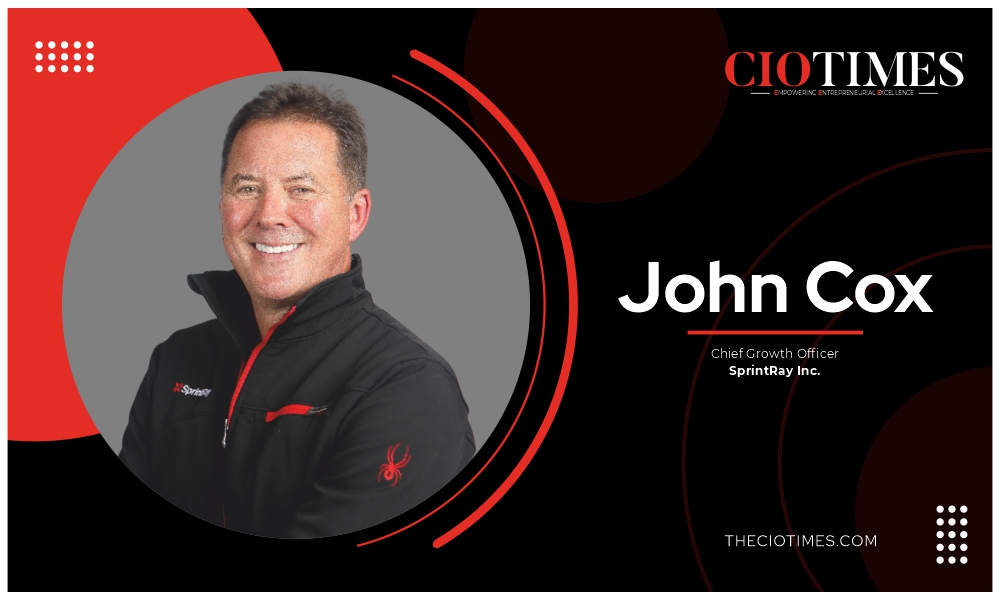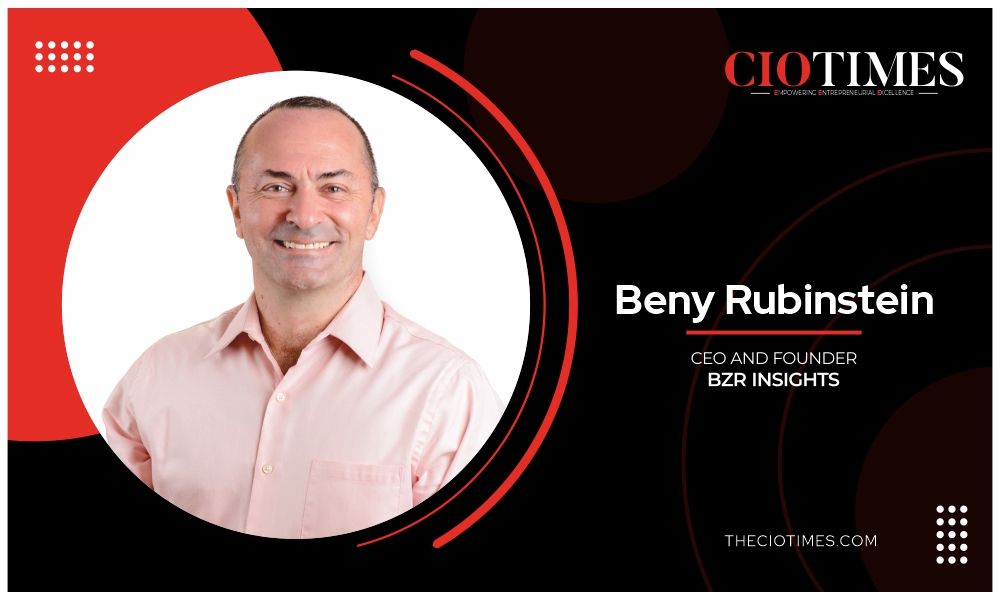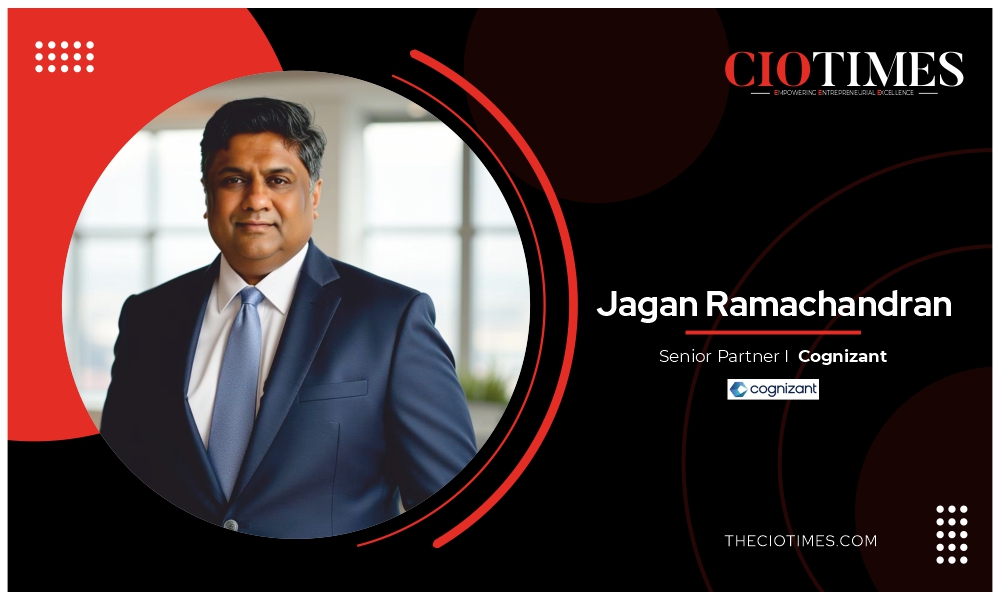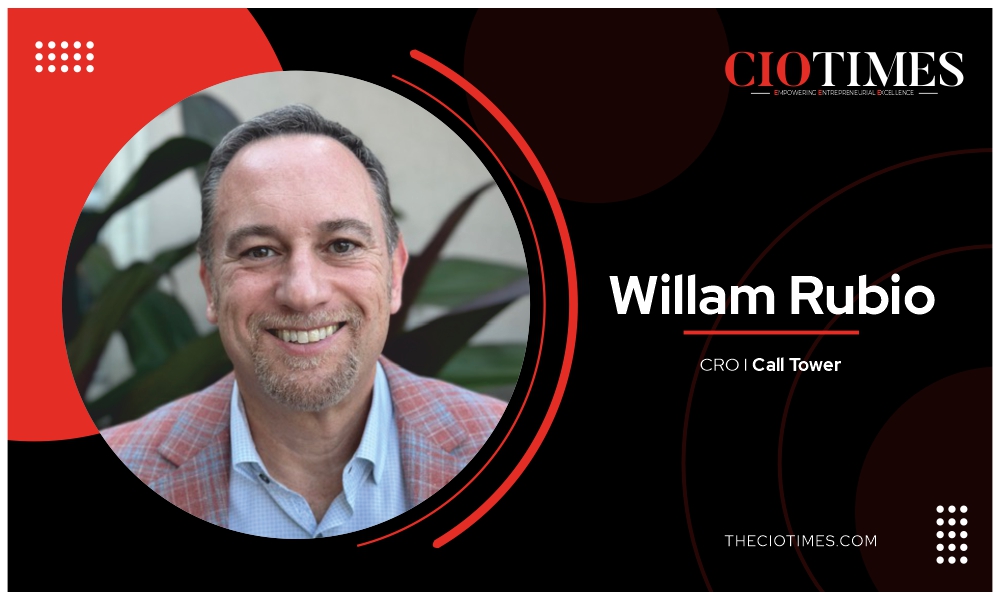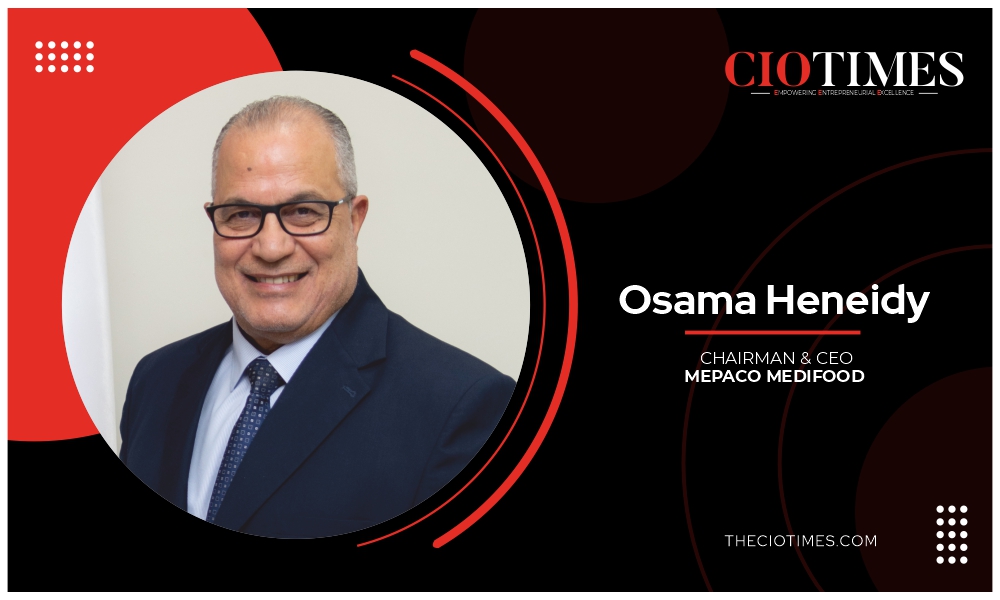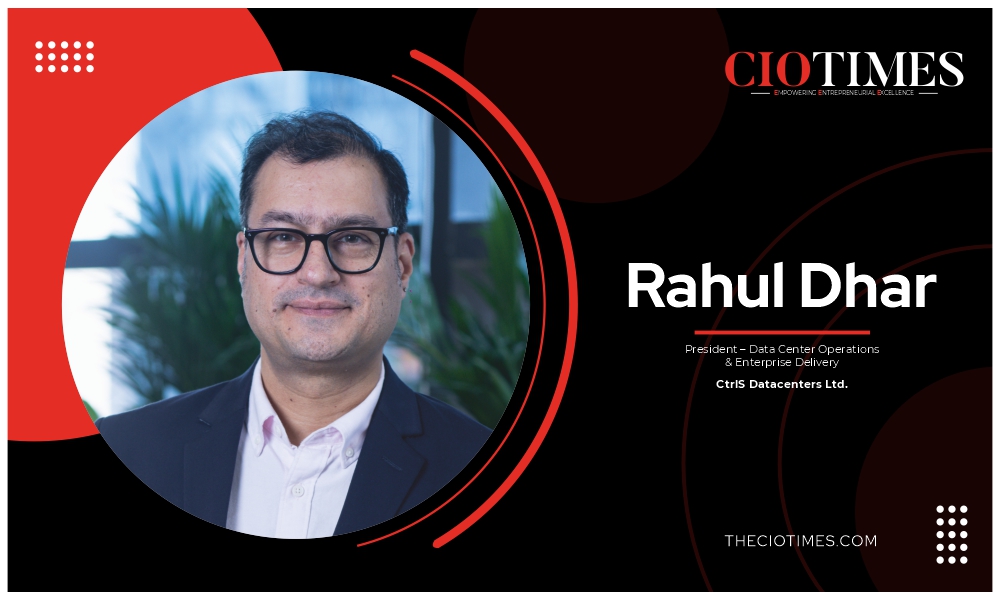In a recent in-depth conversation with CIO Times, Jagan Ramchandran, Senior Partner Healthcare Consulting at Cognizant, opened up about his professional journey and shared his views on the future of healthcare, underscoring the transition from reactive “sick care” to proactive “well care” and the growing impact of technology on patient outcomes. He also spoke about his interests beyond work, future ambitions, key learnings, and more. The excerpts that follow are from this interview.
Q1. With over 25 years of experience advising some of the largest healthcare payers and providers in the US, what defining moments have most shaped your professional journey and leadership philosophy?
Two ideas shape my journey: 1) Bridging worlds together and 2) Building a Learning Organization.
- Bringing worlds together started early in my career: Enabling Business and IT alignment during my software engineering career. Later, as a strategy consultant, I realized there was a chasm between strategy and execution. This experience led me to build the business-led digital transformation approach that starts with clear outcomes, designs the right experiences and capabilities, and chooses technology only then to support them. The same thinking now guides how I look at the well- and sick-care universes, connecting complex care with preventive and digital health so people feel supported throughout their health journey, not just when they are ill.
- Building a learning organization has been the quiet backbone of my leadership journey. For me, learning starts with disciplined curiosity: I created the Voice of the Member research to give our teams real signals on what members value and to turn those insights into repeatable offerings, not one-off projects.
Internally, Cognizant Consulting’s Five Pillars of Consulting framework, which I helped build, provides thousands of consultants with a shared language, expectations, and feedback loops, enabling intentional, visible growth. I try to pair that structure with empowerment—ownership, stretch roles, and access to senior clients—so people feel safe to experiment and learn.
Innovation hubs and innovation programs extend this idea to clients, using Think Big–Start Small–Fail Fast to test, measure, and scale innovative ideas, thereby building a culture of innovation and learning amongst my client teams.
Q2. You began your career in technology and process reengineering roles before moving into senior leadership in healthcare advisory. How did those early years influence the way you approach large-scale transformation today?
My early years in software engineering and process reengineering gave me an operator’s mindset and a bias for execution. Managing software development at TCS and Infosys, and leading a mobile value-added services program in Brussels, taught me that strategy matters only when it delivers measurable outcomes.
Today, I anchor transformations in a Business-Led Digital Transformation discipline: start upstream with clear outcomes, then translate capability maps, customer journeys, process models, and business solution designs to product backlogs and execution roadmaps. Every strategy deliverable is “execution-ready,” which bridges the chasm between strategy and execution.
Those years also made me customer-centric & product-minded: I target my programs to deliver on health outcomes such as transparency, access, and engagement – so that we judge transformations by the value they provide to end consumers, not merely by activity. Today, I approach large programs as portfolios of products and capabilities, prioritize based on measurable value, and iterate in short cycles to de-risk change while accelerating benefits.
Q3. Having worked extensively across payers, providers, and integrated delivery systems, what major shifts have you observed in the US healthcare landscape over the past two decades?
Over the past twenty years, US healthcare has moved from plumbing and standards to consumer-grade experiences, to AI-enabled, whole-person ecosystems. I see the emergence of Medicine 3.0, with a focus on prevention, as the next generation of healthcare.
- Standardization and Integration (Pre-ACA):
From the early 2000s through the pre-ACA period, the industry focused on standardizing data and transactions and integrating delivery of a fragmented ecosystem. EHRs, HIPAA EDI, and the long shift from ICD-9 to ICD-10 established common standards for coding, billing, and analytics aligned with regulatory requirements. HMOs and managed care matured as the dominant chassis for cost control, while hospital and physician consolidation created integrated delivery systems that could run on shared platforms and pathways.
- Consumerization and Digital Health (ACA to COVID):
With ACA expansion and the rise of smartphones, attention shifted from the back office to the member/patient experience. The introduction of exchanges, innovation in PPOs, and significant growth in Medicare Advantage encouraged individuals to become more active participants in their healthcare decisions, prompting payers to adopt approaches similar to those seen in retail financial services. The emergence of portals, apps, remote monitoring, and early telehealth services began to make healthcare feel more accessible and transparent—offering greater convenience and clarity around costs and access, much as seen in banking or property and casualty insurance.
- Post-COVID, AI, and the Two Universes:
COVID unlocked telehealth at scale and normalized virtual front doors, backed by temporary but repeatedly extended flexibilities. AI is now re-wiring everything from prior authorization to risk adjustment, while interoperability and SDOH data enable whole-person, omni-channel care models. A separate “sick care” segment continues to address complex episodes among the highest-cost groups. In contrast, an expanding “well care” segment—including wearables, GLP-1 medications, digital fitness, and mental health solutions—focuses on promoting healthspan. The key opportunity lies in finding ways to connect and create value across both these areas.
Q4. As a Senior Partner at Cognizant, you lead strategic advisory programs from vision through execution. What distinguishes successful healthcare transformations from those that struggle to deliver sustained value?
Successful healthcare transformations are business-led, experience-centric, and execution-minded, rather than technology-first initiatives. The most effective programs tie strategy to clear outcomes that deliver access, transparency, satisfaction, efficiency, and health outcomes. Successful programs make those outcomes the north star from day one.
- Business-led, not IT-first:
Successful programs start with a clear future-state vision, differentiated capabilities, and ROI metrics, with the business owning strategy and design end to end. Struggling programs typically let technology choices drive scope, resulting in the retrofitting of old processes, low adoption, and disappointing returns.
- Human-centered, ecosystem-aware:
High performers design around stakeholder journeys and “moments that matter” for members, providers, and brokers, using outside-in market insight to shape experiences. They design to orchestrate seamless, consumer-grade experiences across the Healthcare ecosystem.
- Execution discipline and sustained value:
Winners codify a business-led lifecycle—future-state, experience, process, and technology design, then Agile MVP delivery with robust change management and adoption plans.
Q5. You have led growth initiatives across regional payers in the East, large payers and IDNs in the West, and providers in the South. How do regional dynamics shape healthcare strategy and transformation priorities?
After leading transformations across different regions and segments in the US, I’ve learned that – Healthcare is local: regional context and consumer segments such as Medicare, Commercial, ACA, Duals, and Medicaid fundamentally reshape strategic priorities. Regional dynamics such as Medicare Advantage penetration, Medicaid/SDOH intensity, Dual-eligible density, value-based care maturity, and local competition shape how strategically payers and providers can pursue growth and transformation. For one of our large clients, we developed a Market Attractiveness Scorecard based on these factors, which aimed to provide helpful insights for improving their reach within specific sub-regions and counties.
Some regional differences we see are: First, in High–Medicare Advantage markets where MA exceeds 50% of Medicare enrollment, MA product design, Star performance, and deep value-based contracts are emphasized to manage risk and total cost of care. Second, states with strong Medicaid and SDOH programs) drive integrated medical–behavioral–social models and digital access to transportation, food, and housing supports, often via managed care and community partners, to reduce preventable utilization. In regions where value-based initiatives such as multi-payer ACOs and global budgets are more prominent, there is a noticeable emphasis on population health platforms, data sharing, and multi-specialty coordination. This gradual shift is gently influencing how both payers and providers approach transformation agendas.
Cognizant’s Voice of the Member survey also aims to capture these differences by segment and region. Commercial members tend to seek “health 360” super apps. In contrast, Medicare Advantage members tend to gravitate toward condition- and care-management tools, and Medicaid members expect mobile-first access to community and SDOH services tailored to their region. I advise clients to master their regional and segment context first, then selectively import best practices from other markets – always through the lens of “what makes this geography/segment unique?”
Q6. Stakeholder experience, member, provider, broker, and patient, has been a key focus of your work. Why is experience management becoming central to healthcare competitiveness and outcomes?
Experience management is now central because it drives both growth and health results. Plans that deliver clear, easy, and trustworthy experiences win in satisfaction and retention. Regulators play a supportive role in this area as well; for instance, CMS Star Ratings place significant emphasis on CAHPS member experience measures.
Today’s consumers have real choices. They compare plans, providers, and digital services side by side. If buying, getting care, or resolving issues feels confusing or slow, they switch. In our work, making shopping and enrollment simple helped a regional plan expand into new states and grow at a lower cost. Clear products and easy journeys convert and retain members.
Additionally, experience removes friction that hurts outcomes and costs. Our Voice of the Member research shows one in four members wait more than two weeks for appointments, and nearly half struggle with transparency in prior authorization, referrals, and appeals. When you fix these pain points – faster access, clearer steps, proactive updates – people get care sooner, adhere better, and payers experience a reduction in call center volumes, rework, and appeals.
Finally, experience must include the people delivering care. Provider burnout and administrative load can degrade quality, leading to poorer patient experience and outcomes. Reducing friction with clear journeys, proactive communication, and supportive tools (including virtual care and AI for routine tasks) lifts both staff and patient experience – becoming a durable competitive edge.
In simple terms: when healthcare feels easy, transparent, and coordinated for members, providers, brokers, and patients, people get care sooner, stick with their plan, and stay healthier – and the organization performs better over time.
Q7. You currently lead Cognizant’s stakeholder experience management market control point for healthcare. How do organizations move from fragmented interactions to truly integrated, human-centered experiences?
To move from fragmented interactions to truly integrated, human-centered experiences, we recommend a business-led, experience-first playbook:
- Set a clear North Star tied to outcomes and experience
Define concrete goals for access, transparency, satisfaction, cost, and health results – and link them to the measures that matter (e.g., CAHPS in CMS Star Ratings)
- Listen to the key stakeholders – then design around their journeys.
Start with real signals and understand their pain points. For example, our Voice of the Member shows that one in four people wait over two weeks for appointments, and nearly half struggle with transparency in prior authorization, referrals, and appeals. Use these insights to map end-to-end journeys for members, providers, brokers, and patients.
- Turn strategy into execution assets teams can use on day one.
Produce personas, journey maps, process models, business solution designs, and EPIC/feature backlogs to guide build and adoption – avoiding “shelfware.” Handoffs are defined early so delivery teams know what to make and how success will be measured
- Stay platform-agnostic and make transparent, criteria-driven decisions.
Choose technology that serves the journey, not the vendor. Maintain a clear separation between advisory and platform sales to maintain trust.
- Orchestrate the experience across channels and teams.
Focus on coordinated communication, faster access, and clear status updates; a better experience is consistently linked to improved adherence, safety, and clinical outcomes.
- Prove value with small pilots – then scale and reinvest
Use an innovation mindset (Think Big, Start Small, Fail Fast) to show early wins and reinvest savings into features people actually use (e.g., digital self-service, proactive notifications)
- Measure and govern what matters – including staff experience.
Update measures and dashboards (e.g., HCAHPS 2.0) and reduce administrative burden for clinicians; provider burnout erodes quality and patient experience.
Q8. Automation, cognitive technologies, and platform modernization are transforming healthcare operations. From your experience, where do organizations see the highest returns, and where do they often misstep?
From my experience, the highest returns come from automating high-volume, rules-based decisions and modernizing the data plumbing behind them.
First, claims and payment integrity: Auto-adjudication and pre-payment analytics cut manual work, speed payments, and reduce errors. Industry benchmarks show that many plans still process 15–20% of claims manually; raising auto-adjudication rates lowers costs and cycle time.
Second, prior authorization: the CMS Interoperability & Prior Authorization Final Rule sets strict decision timeframes and requires FHIR APIs. Teams that redesign policy and workflow, then automate, see faster, more transparent decisions and lower administrative burden.
Modernizing EHR/claims platforms and adopting FHIR APIs improves resilience, interoperability, and speed to value; cloud migrations enable redesigned, leaner app portfolios and new services. From our work, end-to-end stakeholder improvements (broker, member, provider, shopper) lifted broker engagement by ~30%, cut member churn by ~20%, and raised provider satisfaction by ~25% – proof that operational fixes plus simple digital journeys pay off.
Where organizations misstep: they start with tools, not outcomes; they “automate” broken prior-auth rules; they lift-and-shift legacy complexity; and they run fragmented genAI pilots without investing in the data, cloud, and governance needed to scale. Our business-led modernization approach helps clients flip their odds and deliver value from these programs.
Q9. You have advised clients on platform selection, M&A, and the creation of new lines of business. What leadership capabilities are most critical when navigating change at this scale?
Across dozens of engagements – from platform selections and M&A integrations to new business launches – three leadership capabilities consistently differentiate successful transformations from stalled initiatives.
- Bridging the Strategy-Execution chasm
Effective leaders hold a simultaneous focus on the strategic horizon and operational reality. They translate ambitious visions into clear, near-term execution plans – what managers should prioritize and ensure alignment from the boardroom to the frontline. Transformations often falter when leaders fail to bridge aspiration with disciplined execution.
- Trade-offs on competing imperatives
Significant change demands balancing competing imperatives: technology optimizing architecture, finance expecting ROI clarity, operations requiring continuity, and employees seeking stability. Successful leaders don’t attempt to please everyone. Instead, they create “transparent trade-off conversations,” making visible why specific priorities take precedence at different phases and building trust through honesty.
3) Structure through ambiguity
Transformations rarely follow the plan. Platform integrations hit snags, acquisitions reveal cultural friction, and new ventures face unexpected obstacles. Leaders who absorb uncertainty without transmitting panic – while maintaining decisive forward momentum – prove invaluable. It’s not about having all the answers.
Exceptional leaders do more than deliver one transformation. They build institutional capacity for continuous change – creating organizations prepared for whatever disruption emerges next. That’s the enduring competitive advantage.
Q10. Throughout your career, you have worked closely with C-suite executives and boards. How do you build trust and alignment when guiding leaders through complex, high-stakes transformation programs?
I build trust and alignment with C‑suite leaders and boards first by aligning on a small set of non‑negotiable outcomes—such as STAR improvement, medical cost trend, digital NPS, and regulatory readiness—and using those as the north star for design, sequencing, and investment decisions. Strategy conversations move quickly from “new initiatives” to tangible results like “reduced avoidable admissions, better gaps‑in‑care closure, and improved clinician experience,” which resonate in the boardroom.
Trust deepens through candor and proactive change management. With large transformations, it’s critical to address people, process, and adoption challenges head-on—explicitly mapping change impacts on teams, workflows, and culture—and connect them directly to outcomes. Offering a structured, phased approach with training, communication, and leadership alignment, Leaders come to rely on that balance of ambition, realism, and human-centered execution.
Governance is structured to be outcome-driven and transparent. C-suite sees outcomes through simple executive dashboards in clear red-yellow-green terms, so progress and problems appear with equal prominence rather than being buried in status reports. In key inflection moments—such as major GenAI or virtual care investments, or cutover decisions—the role is to frame options and their implications, while keeping informal channels open for questions. Hence, boards hear about emerging risks early, rather than only seeing good news until a crisis breaks out.
Trust with the C-suite and boards is earned. I do that by consistently applying these three principles and backing them up with how we work.
Q11. Thought leadership and industry insight play a key role in your work, from shaping service offerings to influencing market direction. How do you ensure these insights translate into tangible outcomes for clients?
Every year, as part of our annual business planning, we identify key emerging trends—new regulations, new products and services, cross-industry innovations, and findings from our Voice of the Member research that reveal what consumers expect from their health plans. We analyze STAR ratings and other quality measures to identify Strategic Control Points (SCPs) that are most critical to our clients’ staying competitive and improving health outcomes.
Examples of these SCPs include stakeholder experience, value-based care, regulatory compliance, and digital health. Once identified, each control point is assigned a strategic leader responsible for translating it into actionable service offerings that we take to market. For instance, Interoperability 2.0 addresses new CMS-0057-F interoperability mandates, while Member Experience Strategy & Design helps payers reinvent consumer engagement as the industry becomes increasingly experience-centric.
Through this structure, we ensure that thought leadership directly fuels execution. Our teams develop assets, frameworks, and content that are promoted through marketing, social platforms, and industry forums—amplifying our Voice on where the industry is headed. This consistent, insight-led approach allows clients to view Cognizant distinctively—not only as an implementation partner but as a strategic advisor shaping their future-state vision and operational model. Leading with a strong point of view differentiates Cognizant in the market and drives tangible outcomes for our clients, including growth, regulatory readiness, and improved member satisfaction.
Q12. Healthcare organizations are under pressure to innovate while managing regulatory, operational, and financial constraints. What advice would you offer leaders striving to balance innovation with stability?
We have helped Healthcare organizations precisely achieve this balance – innovating while addressing their constraints. In fact, in 2022, I wrote a perspective article titled “Three ways innovation hubs can accelerate personal health technology”, to help healthcare organizations invest in the well-care universe while managing the stability and constraints that you referred to.
In another example, for a large client, I am heading our innovation program, which focuses on identifying the most strategic ideas for this client and helping them select the right ideas to build POCs/POTs. 80% of such ideas are using GenAI/Agentic AI-based technologies.
Establishing innovation hubs or dedicating an innovation program offers a structured solution—providing a safe space for experimentation, collaboration, and measurable learning. By applying a “Think Big – Start Small – Fail Fast” approach, leaders can incubate ideas, build proofs of concept, and scale only what delivers proven value.
This balance between agility and control is critical. Innovation must advance within guardrails that protect quality, compliance, and patient outcomes. Controlled pilots enable organizations to test new healthcare models or technologies under real-world conditions without jeopardizing ongoing operations. Strong data governance and interoperability are equally vital. Leaders should ensure privacy compliance, securely integrate data, and align innovations with existing workflows to prevent silos. Partnerships with technology firms, startups, and academic institutions can further accelerate innovation, share risk, and expand access to specialized expertise.
By fostering structured experimentation and cross-functional collaboration, healthcare leaders can deliver meaningful innovations that improve outcomes and efficiency—while protecting the core stability that patients, providers, and regulators expect.
Q13. Looking ahead, what major trends or disruptions do you believe will redefine the US healthcare ecosystem over the next five to ten years?
The critical trend that I see emerging is the two-universe model – a well-care and a sick-care universe. A distinct “sick care” universe still manages complex episodes in the top-cost cohort, assisted by AI-driven efficiencies. In contrast, a fast-growing “well care” universe—wearables, subscription models, digital fitness, wellness—competes on healthspan. The strategic game for healthcare companies is to bridge and monetize both these worlds.
Traditionally, healthcare has focused primarily on the sickest 5–10% of patients—those who account for a significant portion of overall costs—while paying comparatively less attention to the needs of healthier populations. Now, exponential technology, evolving regulations, and consumer demand for personalization are reshaping the industry. AI optimizes clinical workflows, claims, and predictive analytics, while telehealth has become mainstream. Regulations such as HIPAA and FHIR standards aim to promote ethical innovation and interoperability. Value-based care advances, emphasizing outcomes and shared accountability. Yet rising costs from chronic diseases and administrative complexity threaten sustainability. To preserve risk pools, payers must actively engage healthy members or lose them to digital, preventive well-care models, the well-care universe.
This parallel well-care universe is growing rapidly, centered on maximizing healthspan—staying healthy and active throughout life. Inspired by frameworks like Medicine 3.0 and the research of experts such as Dr. Peter Attia and Harvard scientists, companies now merge wellness and medicine. They empower consumers with wearables, at-home tests, and direct-to-consumer access to medications, lab work, functional health panels, and direct primary care. Through subscription models, these wellness platforms are crossing into diagnosis and prescription services. This evolution threatens traditional insurance models, as healthier populations may opt out of insurance, creating a disruptive dynamic—the well-sick care flywheel. The key opportunity for healthcare companies is to connect and create value across both of these worlds.
Q14. Finally, what legacy do you hope to leave through your work in healthcare advisory and transformation?
The legacy I hope to leave is simple: I want to be remembered as someone who built bridges and empowered people. For me, building bridges means narrowing the gap.
- Between strategy and execution, business-led digital transformation is not just an approach; it shows up in how work gets done.
- Between patient experiences and the organizations that deliver them, conducting the Voice of the Member survey since 2016 was one way to give members a louder voice and more direct influence on how healthcare organizations design member experiences.
- Between future evolution and today’s strategies—the well-care and sick-care universes—and helping healthcare leaders shape approaches that keep care affordable while still improving outcomes.
Equally, I want my legacy to live through the people I’ve worked with. If those teams say they felt empowered, experienced empathy in decision-making, and learned how to translate complexity into clarity—while thinking like owners and insisting on excellence—then the impact has multiplied.
Visit the digital edition now


